by Ken Sehested
23 September 2019
Stirred by correspondence with three friends, and punctuated by two historic events, the past week has been a whirlwind of emotions.
My good friend Greg is the smartest person I personally know when it comes to understanding the complex web of factors 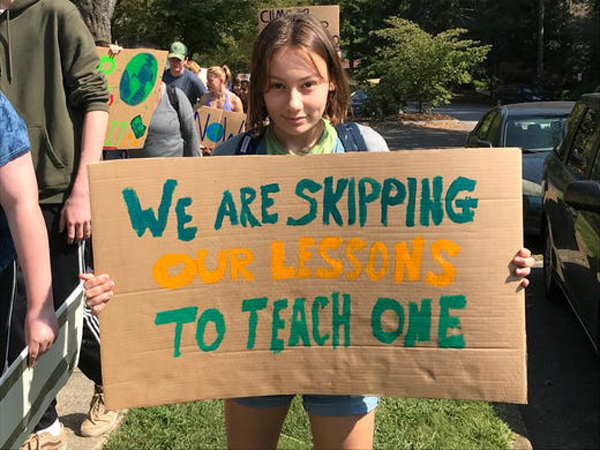 behind impending environmental collapse. He also has a keen moral vision. A high school math teacher, his convictions are rooted in spiritually-formed personal integrity. He’s taken part in dozens of environmental direct actions, including several stays in jail, for acts of civil disobedience.
behind impending environmental collapse. He also has a keen moral vision. A high school math teacher, his convictions are rooted in spiritually-formed personal integrity. He’s taken part in dozens of environmental direct actions, including several stays in jail, for acts of civil disobedience.
Right: Photo by Brian Gordon, Asheville Citizen-Times
A frequent topic of conversation is this gnarly dilemma: How do you tell the truth about what we’re up against without counseling despair?
Just last year the UN Intergovernmental Panel on Climate Change reported that humankind has a bare dozen years left before dramatic, potentially catastrophic climate change occurs. And just this week the World Meteorological Organization reported that ecological collapse is proceeding faster than previously thought.
The really scary thing is that we likely won’t know where the point of no return is before we actually cross it.
I rely on Greg to sharpen my intelligence and deepen my spiritual attention. We alert each other to resources from time to time. Last week I sent him the link to Robert Jensen’s “,” a review essay of Naomi Klein’s new book, On Fire: The (Burning) Case for a Green New Deal.
Greg had seen it, but added, “I don't think I have any insights, really. I just struggle to live with what I know. Then again, I also know that I tend to gravitate toward pessimism, so I try to let that realization counterbalance my darkest moments. But all in all, I feel virtually hopeless about the our chances of avoiding catastrophic climate change and ecosystem collapse.”
§ § §
“Storm coming / No way it's gonna miss us now / Storm coming /
Don't be frightened by the sound of it / Don't be frightened by the sound.”
—Justin Townes Earle, “Frightened by the Sound”
§ § §
One of the reasons it is difficult to get people to comprehend the enormity of the crisis we face may be the metrics we use. Scientists agree that unless we significantly lower greenhouse gas emissions, to maintain earth’s temperature rise to 1.5°  Centigrade (2.7° Fahrenheit), we face almost certain environmental calamity, compounded by increased political instability and global violence caused by competition for vital resources.
Centigrade (2.7° Fahrenheit), we face almost certain environmental calamity, compounded by increased political instability and global violence caused by competition for vital resources.
1.5° sounds like an awfully modest goal. That’s because we fail to grasp the gravity of the math.
We tend to think of addition instead of multiplication, of incremental increase rather than quantum leaps. Our fledgling minds are playing checkers while Mother Nature is playing 10-dimensional chess.
For instance: Ten to-the-power-of one is 10. Ten to-the-power-of 10 is not 20. Ten to-the-power-of 10 is 10,000,000,000.
Or, in another gauge of scientific measurement, think of how the power of earthquakes are calculated using the Richter Scale. A 1.5 magnitude quake is more than five times bigger, and releases more than 11 times more energy, than a 0.8 quake.
Or, imagine this: A plaza bigger than a football field, with mousetraps filling the space, side by side, from end zone to end zone. Each with cocked arms, upon which a ping-pong ball rests. Overhead, a red-tailed hawk flies by, losing its grip on a scavenged mouse, which falls, hitting one of the traps. The spring loaded arm launches the ping-pong ball some distance away, striking another. But the first ball doesn’t plop—it bounces. Now in quick succession two balls fly, striking two others. Then four balls fly; then eight; then 16; then 32; then 64; then 128. And so on and so on, until thousands are in the air.
This is what environmental scientists mean when they speak of a negative climate feedback loop, when one distress indicator triggers countless others, with multiplying effect. Human efforts to rectify the damage simply can’t keep up with the cascading wreckage.
§ § §
“If you defile the land, it will vomit you out.”
—Leviticus 18:28
§ § §
Then came last week’s historic Youth Climate Strike marches, mobilizing millions of people, led by young people in 185 countries, to demand effective political action to address our anthropogenic folly. Beginning in the Pacific Islands, through Australia and southern Asia, through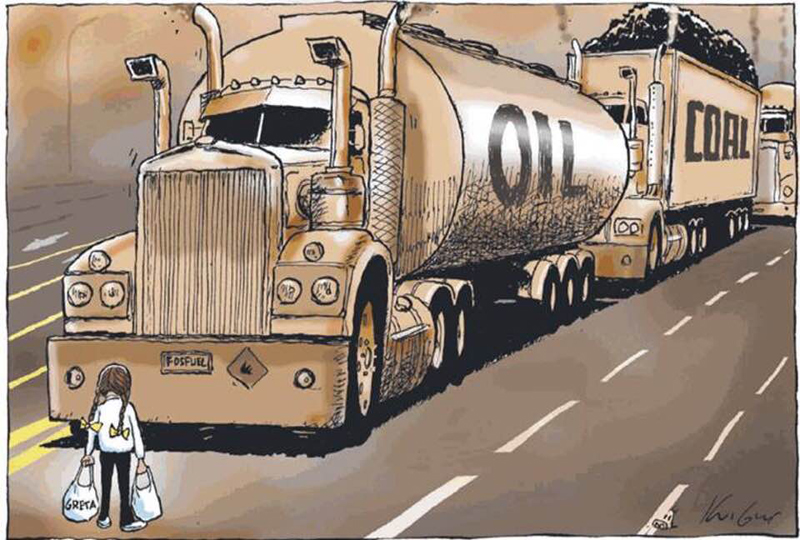 out Africa and Europe, culminating in hundreds of actions in the Americas. Even in places like Afghanistan, an active war zone, through the streets of Kabul protected by an armored military carrier.
out Africa and Europe, culminating in hundreds of actions in the Americas. Even in places like Afghanistan, an active war zone, through the streets of Kabul protected by an armored military carrier.
It’s hard to believe that barely a year ago 15-year-old Greta Thunberg launched a solitary (and ridiculed) vigil outside the Swedish parliament demanding a more robust response to climate failure. Just a little girl—who also happens to live with autism.
News this morning of Thunberg’s address to the UN Climate Summit in New York sent me to a video of her comments. (Listen to this one minute excerpt.) It was breathtaking, and I furiously wrote this imagined caption to go with a Facebook post, adding the weblink to a brief excerpt from her remarks:
“The Lord God Almighty, Creator of heaven and earth; Sovereign of every potentate; Mother of every orphan, widow, and stranger; Father of the prodigal, the afflicted, the shamed; Friend of the friendless and Advocate of the abandoned—this One assembles the nations and creatures and every star’s orbit, to declare the following.” [Then posting the weblink to Thunberg's comments.]
Karen, another friend, quickly responded, saying “The clip of Greta is incredibly powerful. But I am shaken right now because I started to read the responses to her comments” [which are brutal]. Even Fox News had to issue an apology when one of its contributors described Thunberg as “a mentally ill Swedish child who is being exploited by her parents and by the international left.”
Yes, I replied, the anonymity of social media provides cover for the most base and cruel human sentiments. These, however, do not represent the most powerful resistance to significant cuts in greenhouse emissions, from suited, board-roomed men, and a few women—who control not just powerful companies but countries as well—who will not be making social media comments but will be wielding enormous financial power to resist meaningful change.
There are thousands of fossil fuel corporate executives, lobbyists, and petro-funded legislators around the world allied against what they see as a threat to economic prosperity. Few of them are motivated by explicitly evil motives. Few wear “black hats” or have larcenous, arsonist intentions.
They are “blind” (to use a biblical metaphor). To the hammer, as the Russian proverb puts in, everything looks like a nail.
§ § §
“For the world has grown full of peril.
And in all lands, love is now mingled with grief. . . .
Yet hope remains while the Company is true.”
—Galadriel, to Celeborn, in J.R.R. Tolkien’s “The Lord of the Rings”
§ § §
So then, how do we tell the truth about the crisis we face without counseling despair or drifting into cynicism?
It re quires that we not close history to a fated outcome. For instance, who would have thought, one year ago, that Greta Thunberg’s paltry protest would launch millions into the streets? The alternative to cynicism, says Rebecca Stolnit, involves “a recognition that we often don’t know what is going to happen ahead of time, and an acceptance that whatever takes place will usually be a mixture of blessings and curses that will unfold over considerable time.”
quires that we not close history to a fated outcome. For instance, who would have thought, one year ago, that Greta Thunberg’s paltry protest would launch millions into the streets? The alternative to cynicism, says Rebecca Stolnit, involves “a recognition that we often don’t know what is going to happen ahead of time, and an acceptance that whatever takes place will usually be a mixture of blessings and curses that will unfold over considerable time.”
It requires that we foster the kind of hope that is more than wishful thinking, a hope that is anchored in a beatific vision, of a Beloved Community, to which we are drawn and not merely shoved. Duty will inspire struggle for a season; only beauty, for a lifetime.
Frankly, despair is a form of self-possession if not outright arrogance. “Cynicism loves itself more than the world; it defends itself in lieu of defending the world” (Solnit, Call Them by Their True Names).
As my friend Karen reminds me, we are definitely in a struggle, one that will raise calluses on hands and blisters on feet—and maybe bloody outcomes. Which shouldn’t surprise people of the Way, since the pioneer of our faith was lynched.
There’s a storm coming.
Yet “Our struggle is not against enemies o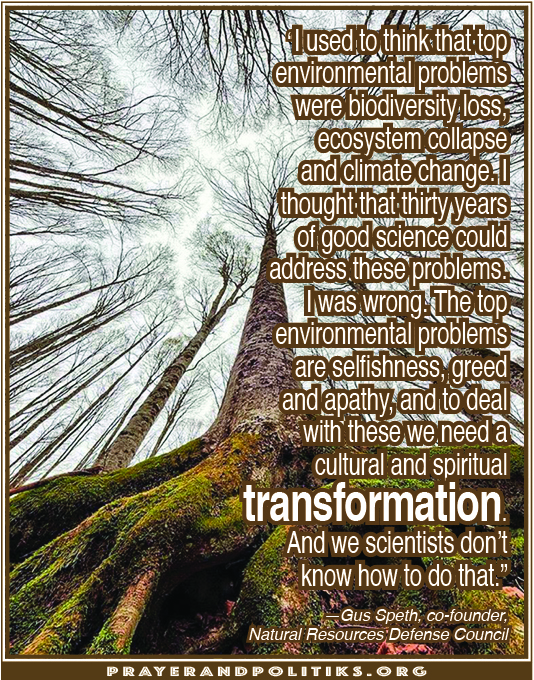 f flesh and blood, but against rulers and powers, against the cosmic powers of this present darkness,” which requires that we “take up the whole armor of God” (Ephesians 6:12-17). Not to protect divine honor but to testify to and reflect the Beloved’s relentless pursuit of Heaven’s agenda “for the healing of the nations” (Revelation 22:2).
f flesh and blood, but against rulers and powers, against the cosmic powers of this present darkness,” which requires that we “take up the whole armor of God” (Ephesians 6:12-17). Not to protect divine honor but to testify to and reflect the Beloved’s relentless pursuit of Heaven’s agenda “for the healing of the nations” (Revelation 22:2).
Tell the truth about the storm breaking over us. But also remember that what has been promised is greater than what is present. Beyond our frightful calculations is a love that will not let us go. Neither should we.
# # #
P.S. Another friend, Daniel Hunter, has just published a “Climate Resistance Handbook” filled with creative, practical ideas on how to bring about actual change. This book is being offered free for electronic download.
©ken Sehested @ prayerandpolitiks.org
 considerations. To be earnestly realistic about such choices, bridle your expectations, and orchestrate more forceful insistence for public character and righteous governance. As Bro. Douglass warned, power concedes nothing without demand.
considerations. To be earnestly realistic about such choices, bridle your expectations, and orchestrate more forceful insistence for public character and righteous governance. As Bro. Douglass warned, power concedes nothing without demand.

 nearby streets.
nearby streets. and hold fast to the One who made you.
and hold fast to the One who made you.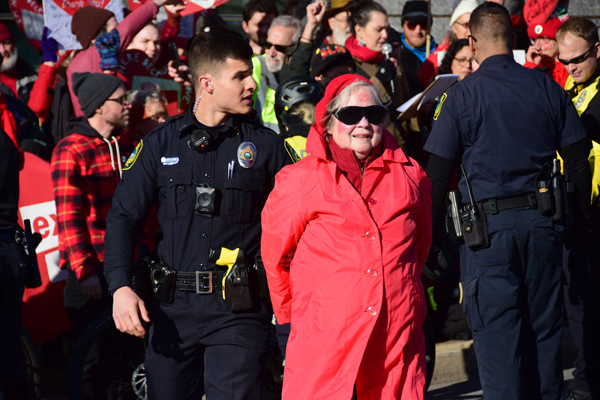 an international movement now active in 56 countries. Local organizers specifically chose Valentine’s Day “to express love and support for NCEI scientists who . . . tell the truth about climate change.”
an international movement now active in 56 countries. Local organizers specifically chose Valentine’s Day “to express love and support for NCEI scientists who . . . tell the truth about climate change.” Their hearts are steady, they will not be afraid" (112:5-9).
Their hearts are steady, they will not be afraid" (112:5-9).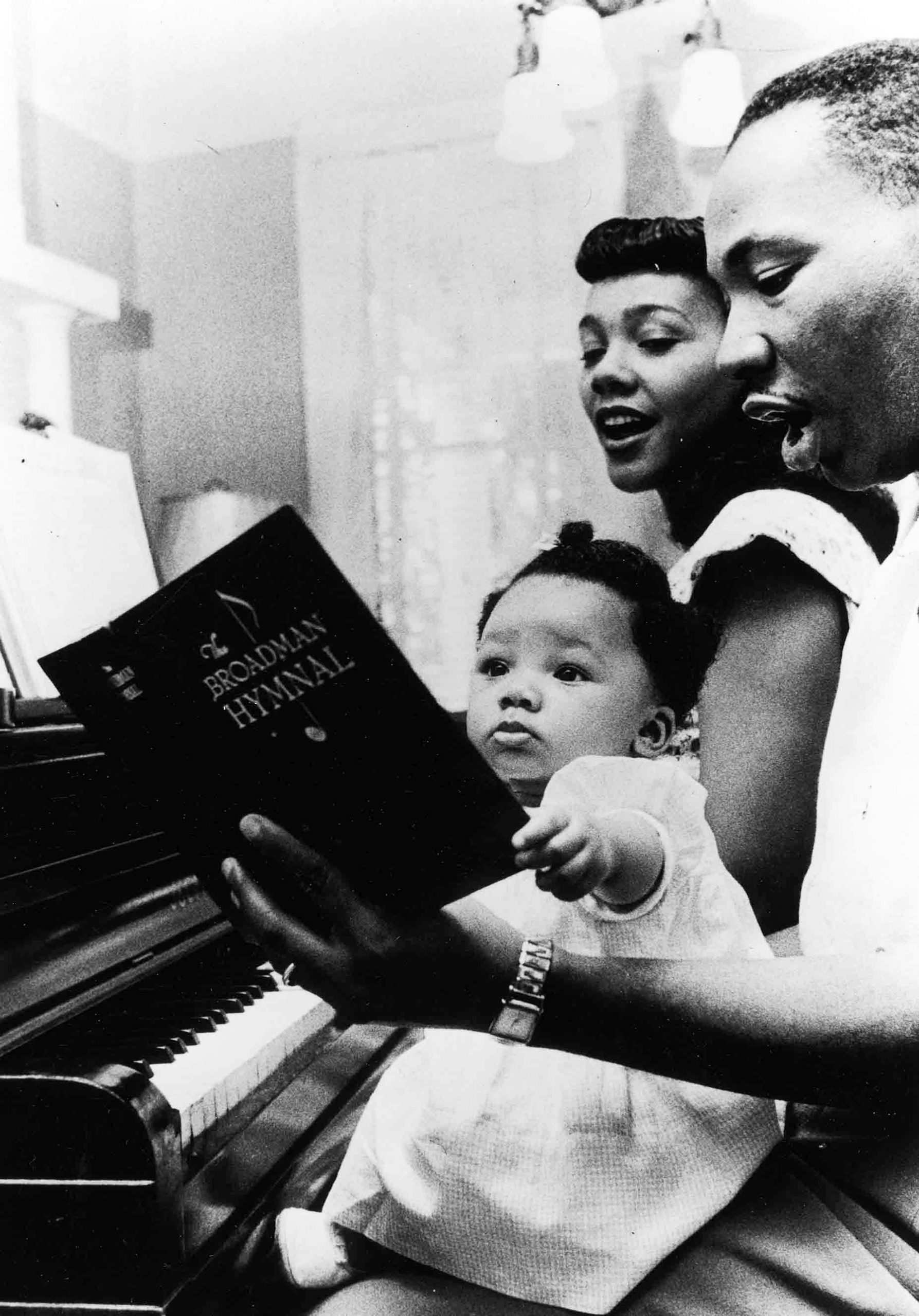 derogatory tone. “Everywhere he go there’s trouble.”
derogatory tone. “Everywhere he go there’s trouble.” behind impending environmental collapse. He also has a keen moral vision. A high school math teacher, his convictions are rooted in spiritually-formed personal integrity. He’s taken part in dozens of environmental direct actions, including several stays in jail, for acts of civil disobedience.
behind impending environmental collapse. He also has a keen moral vision. A high school math teacher, his convictions are rooted in spiritually-formed personal integrity. He’s taken part in dozens of environmental direct actions, including several stays in jail, for acts of civil disobedience. Centigrade (2.7° Fahrenheit), we face almost certain environmental calamity, compounded by increased political instability and global violence caused by competition for vital resources.
Centigrade (2.7° Fahrenheit), we face almost certain environmental calamity, compounded by increased political instability and global violence caused by competition for vital resources. out Africa and Europe, culminating in hundreds of actions in the Americas. Even in places like Afghanistan, an active war zone, through the streets of Kabul protected by an armored military carrier.
out Africa and Europe, culminating in hundreds of actions in the Americas. Even in places like Afghanistan, an active war zone, through the streets of Kabul protected by an armored military carrier. quires that we not close history to a fated outcome. For instance, who would have thought, one year ago, that Greta Thunberg’s paltry protest would launch millions into the streets? The alternative to cynicism, says Rebecca Stolnit, involves “a recognition that we often don’t know what is going to happen ahead of time, and an acceptance that whatever takes place will usually be a mixture of blessings and curses that will unfold over considerable time.”
quires that we not close history to a fated outcome. For instance, who would have thought, one year ago, that Greta Thunberg’s paltry protest would launch millions into the streets? The alternative to cynicism, says Rebecca Stolnit, involves “a recognition that we often don’t know what is going to happen ahead of time, and an acceptance that whatever takes place will usually be a mixture of blessings and curses that will unfold over considerable time.” f flesh and blood, but against rulers and powers, against the cosmic powers of this present darkness,” which requires that we “take up the whole armor of God” (Ephesians 6:12-17). Not to protect divine honor but to testify to and reflect the Beloved’s relentless pursuit of Heaven’s agenda “for the healing of the nations” (Revelation 22:2).
f flesh and blood, but against rulers and powers, against the cosmic powers of this present darkness,” which requires that we “take up the whole armor of God” (Ephesians 6:12-17). Not to protect divine honor but to testify to and reflect the Beloved’s relentless pursuit of Heaven’s agenda “for the healing of the nations” (Revelation 22:2).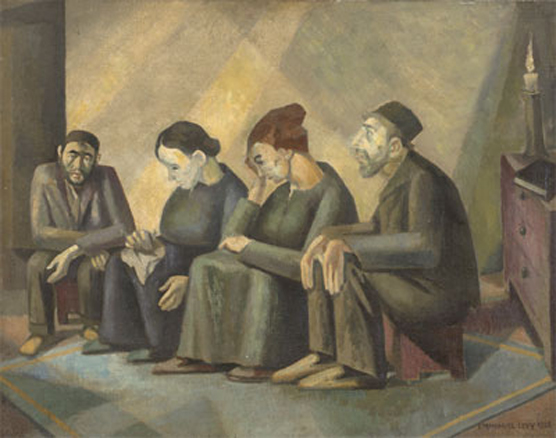 Lacking such warrant, the inevitability of history’s advance on a corpse-paved highway is assured. The choices narrow to two: eat, or be eaten. This is the way of the world—which is precisely why Jesus said “My kingdom is not of this world.” (He was not speaking of the earth—the distinction is crucial.)
Lacking such warrant, the inevitability of history’s advance on a corpse-paved highway is assured. The choices narrow to two: eat, or be eaten. This is the way of the world—which is precisely why Jesus said “My kingdom is not of this world.” (He was not speaking of the earth—the distinction is crucial.) the discomfort here below but opens space and time to find in each other’s presence the Solace needed to carry on, the Courage needed to proceed in spite of peril.
the discomfort here below but opens space and time to find in each other’s presence the Solace needed to carry on, the Courage needed to proceed in spite of peril. mounted, the old stories told new. Not to mention the body-broken, blood-shed acts of interceding bodies jump-started by intercessory prayer. These acts conspire and, in a time and a manner we know not of, will arise to allay the earth’s trembling and annul its tribulation.
mounted, the old stories told new. Not to mention the body-broken, blood-shed acts of interceding bodies jump-started by intercessory prayer. These acts conspire and, in a time and a manner we know not of, will arise to allay the earth’s trembling and annul its tribulation.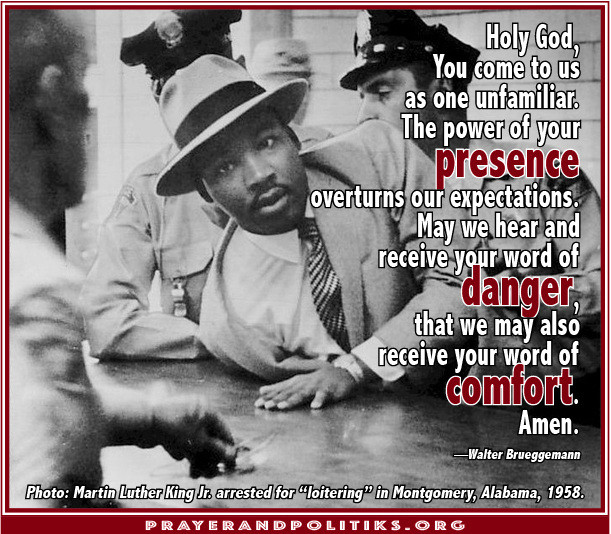 • “
• “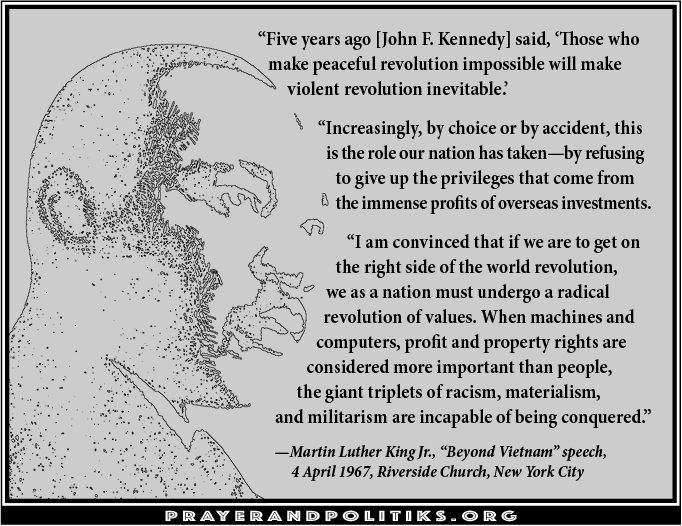 in use by medical personnel, it reverted to a series of in-house hospital notices.
in use by medical personnel, it reverted to a series of in-house hospital notices.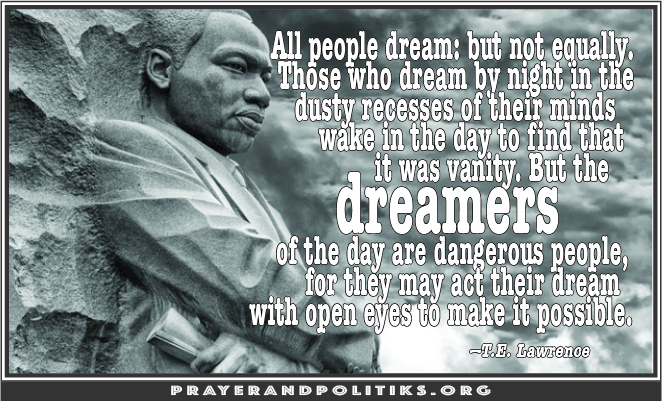 African American activist community privately debated committing acts of civil disobedience during the city’s annual Martin Luther King Jr. Holiday parade, because of the encroachment of corporate sponsorship and the prevalence of military bands.
African American activist community privately debated committing acts of civil disobedience during the city’s annual Martin Luther King Jr. Holiday parade, because of the encroachment of corporate sponsorship and the prevalence of military bands.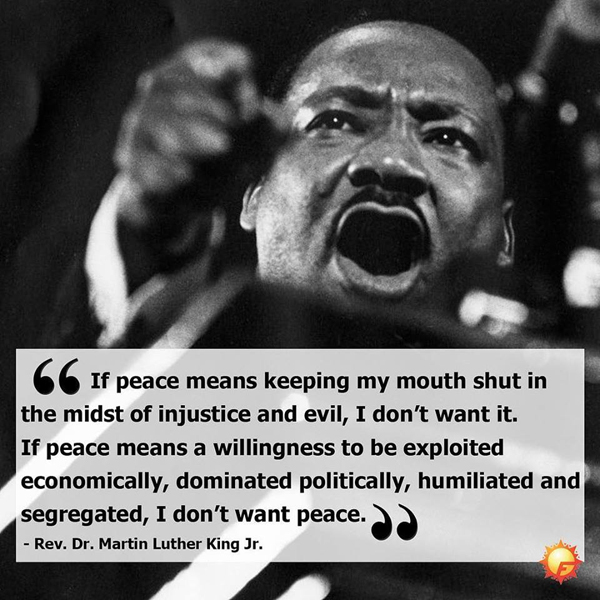 speeches from the period. Doing so requires the kind of deep pockets of companies like AT&T, Chevrolet, Apple and Mercedes, which have MiLKed that legacy to enlarge market share. Once you’ve been to this particular mountain, with its promised-land vista of a different sort, gates go up, guard dogs prowl, armed security teams patrol.
speeches from the period. Doing so requires the kind of deep pockets of companies like AT&T, Chevrolet, Apple and Mercedes, which have MiLKed that legacy to enlarge market share. Once you’ve been to this particular mountain, with its promised-land vista of a different sort, gates go up, guard dogs prowl, armed security teams patrol.